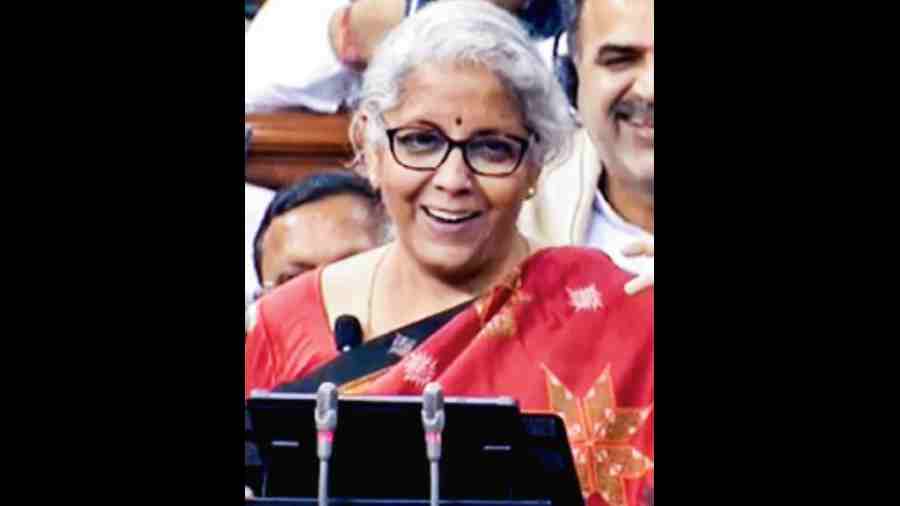In Amrit Kaal budget there is no Amrit for poor tribals and Dalits. This was felt by the members of the Dalit Arthik Adhikar Andolan (DAAA) of the National Campaign for Dalit Human Rights felt this at Ranchi on Friday. Significantly, the term ‘Amrit Kaal’ comes from Vedic astrology and indicates a sort of golden era.
In the run-up to the 2024 general elections, the BJP-led government has heightened the emphasis on ‘Amrit Kaal’, saying that the coming period in India is going to be its most prosperous, with economic growth and social justice. It was first used by Prime Minister Narendra Modi in 2021 during the 75th Independence Day celebration while the finance minister stated that the annual budget was the first budget of the Amrit Kaal.
“Inflation is at an all-time high and unemployment has also risen in the last few years, however, this budget is far from addressing some of the people-centric issues. The total Union budget 2023-24 is Rs 49,90,842.73crores and the total allocation for the welfare of the Scheduled Castes is Rs 1,59,126.22crores (3.1%) and for the Scheduled Tribes is Rs 1,19,509.87crores (2.31%). Out of this the targeted funds that will go directly to the Dalits is Rs 30,475crores and to the Tribal Rs 24,384crores. The government’s allocation of funds truly reflects its commitment to addressing the socio-economic situation of Dalit and Adivasi communities,” said Mithilesh Kumar, the state coordinator of DAAA-NCDHR.
“In the first budget of the Amrit Kaal as stated by the finance minister, it seems there is no Amrit (sacred water) for tribals and Dalits,” said Balram, a former state advisor to the Supreme Court-appointed committee on food cases in Jharkhand.
“Despite the pressing need for targeted public welfare schemes to address the systemic injustices and disparities faced by these marginalised groups, it appears that a significant portion of the allocated funds has been directed towards irrelevant and general schemes, neglecting the urgent and specific needs of these communities,” felt Balram. According to NCRB data for 2021, there is a total of about 50,000 crimes and more than 8,000 crimes of violence against Dalit Adivasi women.
However, just Rs 150crores of the budget is set aside to combat atrocities against Dalit women out of the total Rs 500crores allocated for the implementation of PoA and PCR Act, the members felt.
“As usual, the majority of the plans are just rhetorical and offer no tangible advantages to the communities. Amrit Kaal should signify the development of the SCs and STs, however, this is not the case. It is quite regrettable that manual scavenging continues to be one of the most demeaning jobs notwithstanding The Prohibition of Employment of Manual Scavengers and their Rehabilitation Act. A total of 58,089 manual scavengers had been discovered nationwide, according to the information provided by the ministry of social justice and empowerment,” added Mithilesh.
“It is disappointing to see that the scheme called the self-employment scheme for the rehabilitation of manual scavengers has been removed in this fiscal year and there is zero allocation for it. The scholarship of those children whose parents are involved in hazardous and unclean occupation sadly has no separate funding either,” he said.
“While the budget should have had more people-centric programs, on the contrary, there is more focus on infrastructure and less on development plans for SCs and STs. We call upon the relevant authorities to take immediate action to rectify this situation and ensure that the allocated funds are utilized in a transparent and accountable manner for the betterment of the Dalit and Adivasi communities,” said James Herenz, the state convener Jharkhand NREGA Watch.
The members also emailed their recommendations and suggestion to the Union finance minister on Friday.
“Out of the total Scheduled Castes and Scheduled Tribes, around 46 schemes are general with no physical targets for SCs or STs. It is recommended that the finance ministry and NITI Ayog direct the concerned ministries to design clear physical targets and transparent processes for the SCs and STs to access these schemes,” the recommendation said.











